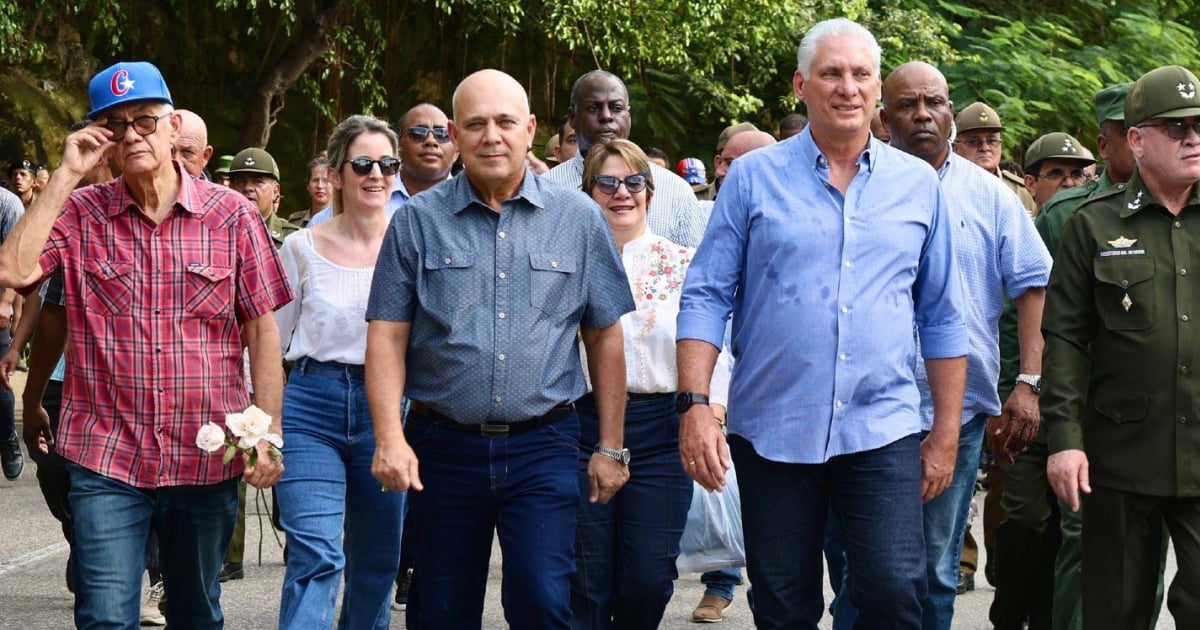
Related videos:
The Cuba Siglo XXI think tank, based in the United States, sees possibilities for a regime change on the Island in the year 2025. This is asserted in the report "Cuba 2025, possibilities and probabilities," made public this Wednesday, in which the Florida think tank assesses the governability of the country and concludes that the totalitarian system has collapsed.
"Regarding regime change, the report refers to altering a framework of institutions, laws, norms, regulations, and ways of thinking that are managed by the government. However, a change of government also becomes essential, because, in this case, it has clearly demonstrated, beyond all doubt, that it opposes regime change and seeks to perpetuate it. Under these circumstances, the government is part of the problem, not the solution," asserts the think tank in a press release.
Additionally, it identifies the death of Raúl Castro as a key factor to catalyze this process, which could lead to an internal power struggle that, combined with popular discontent and international pressure, might result in a transition to a new political model.
Six international indicators
To reach this conclusion, experts Emilio Morales and Juan Antonio Blanco have measured six international governance indicators: rule of law, economic and social security, state efficiency, corruption, international relations, and political stability. This analysis has led them not only to determine that the "situation is critical" but also to predict that "many things that were considered impossible until recently are now possible and even likely."
"The combination of the collapse of the governance regime, the extension and deepening of social discontent, the emergence of internal tensions within the power bloc, and a greater strategic clarity in Washington with the arrival of the Trump Administration could signal a turning point and the beginning of a decisive phase on the island. This situation coincides with the severe crisis of the Maduro regime. Their codependence has helped both navigate several crises in the past, but this time it may be the common Achilles' heel that leads to their downfall," notes Cuba siglo XXI.
The report has identified three key factors in the governance crisis facing the Island. These are the economic collapse, the social crisis, and the political instability.
Economically, experts detect a "precarious financial state," due to the decline in income from remittances, tourism, and the export of medical services. Socially, they highlight the massive wave of migration, which reflects collective discontent and has its roots in a 90% increase in poverty. Behind the political instability, they place the citizens' resistance stemming from the mass protests of July 11, 2021 and the increase in state repression.
From Cuba Siglo XXI, they believe that in order to stabilize the country, it is necessary to change the totalitarian regime; to prevent new massive migrations and to ensure that the Island stops being a center of international subversion. However, they clarify that it is not guaranteed which direction the change might take, nor even if that change is 100% assured. They only state that "this change is possible."
In the event of a change, the balance could tip towards a civic-military movement led by pro-democratic forces that establishes a transition towards democracy and the rule of law, or conversely, it could be a change controlled from within the power bloc, which might result in a new autocratic and illiberal regime with some degree of controlled economic openness.
Military actions
In light of this situation, the study suggests that the Trump Administration and the international community in general can play a crucial role if they choose to support the democratization of Cuba and deter the regime from resorting to violence, even going so far as to "neutralize its repressive apparatus with military, surgical, and targeted actions."
The authors emphasize that "what determines historical events is not what analysts believe to be possible, but rather what the actors themselves –whether right or wrong– decide to believe is possible." At this moment, they insist, there are many factors that make this change possible.
Filed under: